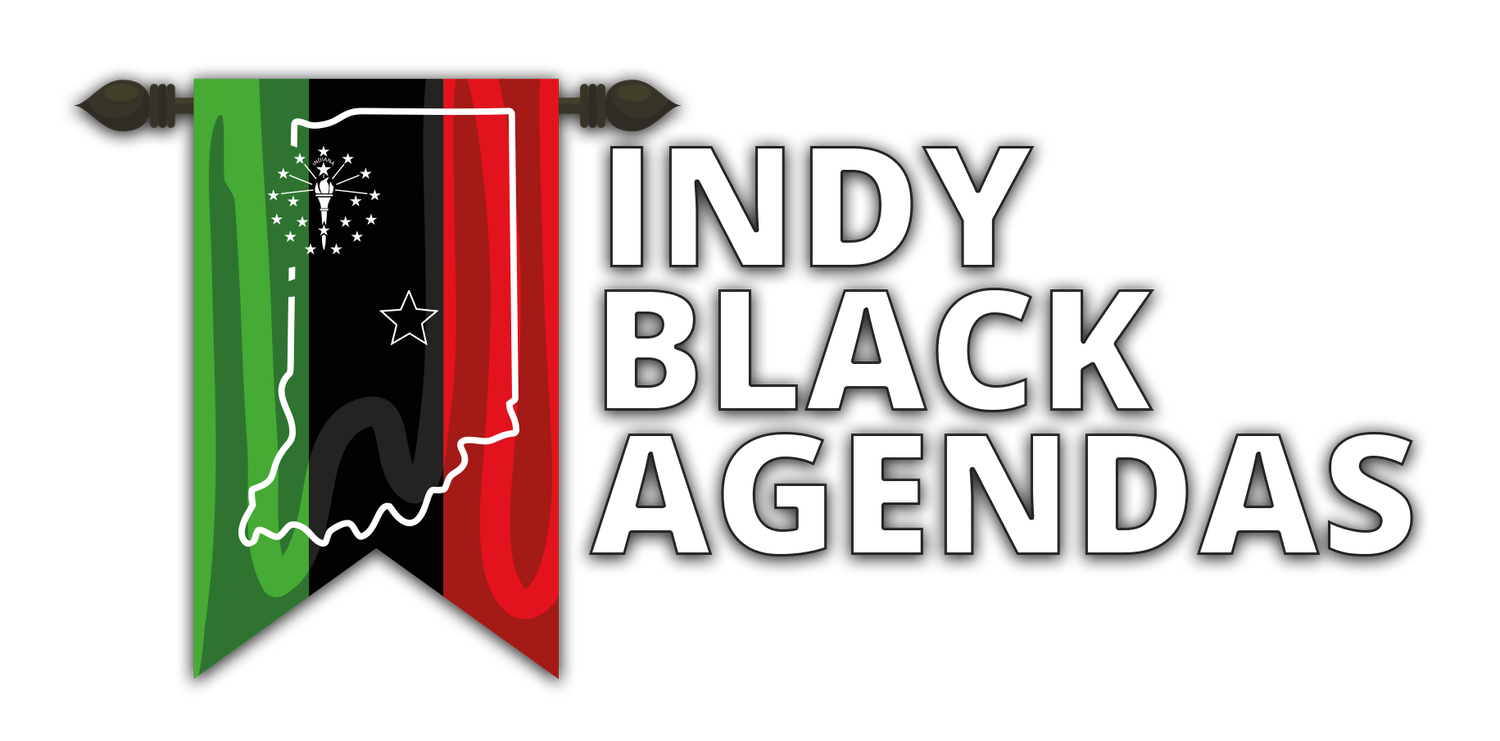Black agenda debate
INDIANAPOLIS RECORDER — Mayor Joe Hogsett and state Sen. Jim Merritt talked about issues that affect the African American community in a mayoral debate Oct. 21 at Arsenal Technical High School. Topics included K-12 education, homicides and food insecurity. The debate — sponsored by the African American Coalition of Indianapolis (AACI), Radio One and the Recorder — is believed to be the first time candidates have participated in a debate specifically about Black issues.
Mayor Joe Hogsett and state Sen. Jim Merritt talked about issues that affect the African American community in a mayoral debate Oct. 21 at Arsenal Technical High School. Topics included K-12 education, homicides and food insecurity.
The debate — sponsored by the African American Coalition of Indianapolis (AACI), Radio One and the Recorder — is believed to be the first time candidates have participated in a debate specifically about Black issues.
Both candidates were asked near the end of the debate if they have a “person of color agenda” or a “Black agenda.”
Merritt, a Republican, released his Black agenda recently as part of a response to concerns raised by the Concerned Clergy of Indianapolis and Baptist Minister’s Alliance. His plan includes creating the Indianapolis Commission on the Social Status of African American Males and establishing affordable housing set-aside requirements for new residential development projects.
“You have my solemn oath that I will follow this when I become mayor,” he said at the debate.
Hogsett, the Democratic incumbent seeking his second term, has given mixed messages on if his campaign has a Black agenda — and even what constitutes a Black agenda. Asked after another debate in August, he said his campaign doesn’t have a Black agenda and maintained his policies help all of Indianapolis.
Hogsett’s response to the Concerned Clergy of Indianapolis and Baptist Minister’s Alliance was mostly a recap of what his administration has done in his first term.
“Let me be clear so there’s no confusion,” he told the audience in his response. “Indianapolis and its elected leadership should absolutely have an agenda to lift up communities of color generally and our African American community specifically.”
At the debate, Hogsett said he has “both” a person of color agenda and Black agenda. He added that his policies represent a “rising tide that lifts all boats.”
AACI leaders and debate organizers have made it clear that establishing a Black agenda is about more than this mayoral election. Along with hearing presentations from both candidates on what their administrations would do for Black people, the organization hosted a Black agenda town hall Oct. 18. There will be more town halls in the future.
On the issue of Black male homicides, Merritt called it “job No. 1 for the mayor of Indianapolis.”
He wants a public safety director who is also deputy mayor and has been touting his chief of police pick in Bill Benjamin, a Democrat and former deputy chief for the Indianapolis Metropolitan Police Department (IMPD) who recently accepted Merritt’s invitation to become police chief should he be elected mayor.
Hogsett noted that the number of homicides began rising before he took over as mayor in 2016 and said it’s encouraging that violent crime overall is down. He also touted IMPD’s hiring of more police officers so the department can get back to beat policing, which makes officers responsible for a smaller area.
Long-time journalist Tina Cosby, the moderator, pushed Merritt on why he continued to support legislation as a state senator that would expand penalties for minors involved in pharmacy robberies after Black leaders approached him about the issue.
“The world has changed,” he said, “and I support the idea of those individuals going to juvenile court.”
Asked what their administrations would do as a long-term solution for food insecurity, Hogsett said the city can’t “solve a problem with 20th-century grocery stores and supermarkets if we’re not embracing 21st-century solutions.”
His plan includes the Indy Food Fund, a grant program to provide support for food initiatives. The first round will start in 2020. The plan also includes expanding home grocery delivery, which the city-county council passed as part of a larger package of food access measures in July.
Merritt has proposed a tax incremental financing district, or TIF, to incentivize grocery stores to open in neighborhoods that don’t have reliable access to healthy food.
As part of undoing some of the systemic racism students face in education, Merritt said he would end zero-tolerance policies at mayor-sponsored charter schools and work with Indianapolis Public Schools to do the same.
Hogsett focused on raising teacher pay and advocating for a more equitable school funding formula.
At the end of the debate, both candidates had a chance to make a significant impact on an audience that was mostly Black. Asked if it should be “Black lives matter” or “all lives matter,” both candidates sidestepped and basically said both, missing an opportunity to explain how “all lives matter” became a response — not a principled statement — to the Black Lives Matter movement.
The next debate, which will also feature Libertarian candidate Douglas McNaughton, is 7 p.m. Oct. 28 at Chapel Hill 7th and 8th Grade Center, 7320 W. 10th St. Fox 59 will host and televise the event.
Contact staff writer Tyler Fenwick at 317-762-7853. Follow him on Twitter @Ty_Fenwick.
This article originally appeared in The Indianapolis Recorder.
